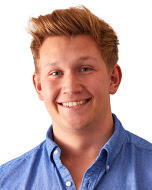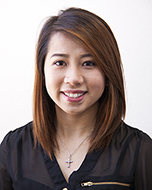Posted 9:09 a.m. Friday, July 29, 2016

Student researchers to present their work Aug. 4.
Student researchers to present their work Aug. 4
UWL McNair Scholars will be presenting their summer research projects from 12:30-4 p.m. Thursday, Aug. 4, in 150 Murphy Library. The event is open to the public. The McNair Scholars Program, a federal TRIO program, is designed to prepare undergraduate students for doctoral studies through involvement in research and other scholarly activities. Three students explain what their research has taught them and how they plan to apply it. [caption id="attachment_46492" align="alignright" width="152"] Jordon Drohner[/caption]
Jordon Drohner[/caption]
Jordon Drohner, sociology and Spanish major Research topic: “Influence factors in the Latinx health paradox”
Q: What is the most interesting piece of information you’ve learned from your research? In the U.S., the typical trend of health is that the higher socioeconomic status you have, the healthier you are. I am exploring the Latinx Health Paradox which is the phenomenon that even though they have varying levels of socioeconomic status, the Latinx population in general is healthier than non-Latinx whites. I believe the most interesting concept that I am exploring for my research is looking at the social support children receive from influential figures like parents and teachers and how it contributes to their later health outcomes. Q: In what way has doing undergrad research helped you prepare for graduate school? Doing undergraduate research has made me understand the type of rigor and the discipline needed to conduct a successful, self-driven research project. Having to do everything from start to finish with the guidance of a professor is a great way to see what research is all about! [caption id="attachment_46493" align="alignright" width="152"] Sarah Pease[/caption]
Sarah Pease[/caption]
Sarah Pease, exercise and sport science major Research topic: “How do some elder champions explain their experience with optimal aging?”
Q: What is the most interesting piece of information you’ve learned from your research? I have learned a lot about aging from my project and that it takes a lot to stay independent and remain that way. One of the biggest takeaways so far is there are a lot of factors that play into aging, but having a positive attitude about aging and taking steps to remain healthy can help individuals stay independent longer. I wasn't surprised that staying physically active would be one of the things that participants talked about when describing their success to aging, but I was also surprised at how much participants talked about how important staying socially active is. Q: In what way has doing undergrad research helped you prepare for graduate school? I am applying to occupational therapy programs and I think coming in with related research experience will help me have a deeper understanding of ways to assist people. Being able to strengthen skills such as written and verbal communication, critical thinking and qualitative analysis will help me to be a more competitive and successful applicant. [caption id="attachment_46494" align="alignright" width="152"] Gaokhia Yang[/caption]
Gaokhia Yang[/caption]
